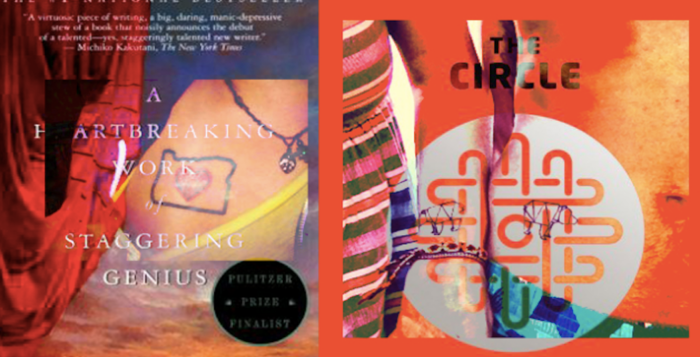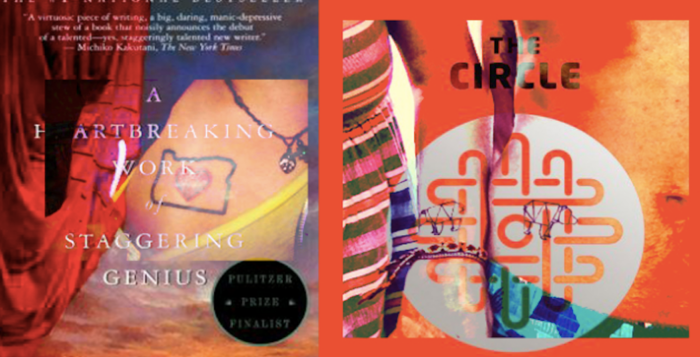
By KQED Pop
I can’t tell you definitively what brought me to San Francisco seven years ago. I mean, graduate school, but why did I apply to San Francisco State? There was the British guy who lived across the street from me who I had a crush on who said I would love it here. That’s the “it’s always about a boy” answer. I needed to leave Portland and become an adult and SFSU was the only school that didn’t require essays in their application and as a 23-year-old I was mainly too drunk to write admissions essays.
But there was also Dave Eggers. I read A Heartbreaking Work of Staggering Genius when I was 18, in my senior year of high school. I read it again my freshman year of college. It blew my mind and changed my life in a way no other book really ever has. A concrete way. While reading the Bible and all of JD Salinger’s non-Catcher in the Rye work and Kurt Vonnegut (the other things I was really into at age 18) were moving and gave me vague ideas about spirituality, A Heartbreaking Work gave me permission to write the way I wanted to write, the way I had tentatively started writing, which was just: about being myself. I couldn’t believe this was actually allowed. That book also gave me an idea that the Bay Area was the place to be, a place where you could be a better version of yourself, a place where standing on the beach and throwing a Frisbee a million miles was possible, a place where tragedy and happiness could coexist.
I also liked the idea of Dave Eggers’ pirate supply store.
So in 2006 I got a tattoo of the state of Oregon on my chest so no one would forget where I was from and left Portland, moving out of the apartment I was sharing with my little brother and allowing all the drunk calls from the non-boyfriend guy I was sort of dating to go to voice mail.
In San Francisco, I became a new person, just like A Heartbreaking Work made me believe was possible. No one knew a single thing about me. I wasn’t held back by the expectations of people who’d known me since I was 13 months old, or four or eight or 14. People met me as Lizzy Acker, the adult. I got to be a writer, a friend, a dependable employee. I wasn’t the girl who totaled her family car in middle school or the girl who cried in Calculus class or staged an unsuccessful boycott of the Mr. Spartan Pageant or who looked like a boy up until sixth grade or who didn’t lose her virginity until she was 22.
Read the rest of the story, by Lizzy Acker, on KQED Pop.







